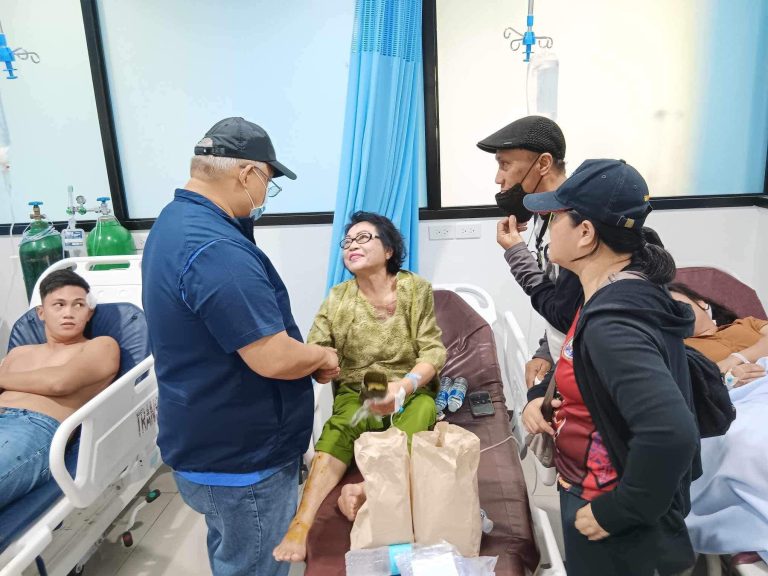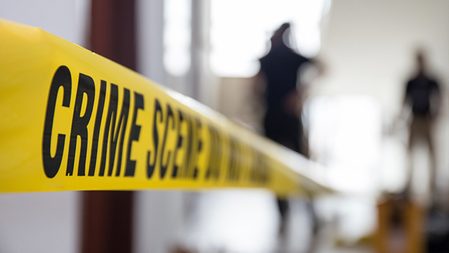MANILA, Philippines — Less than two hours after the Sunday, Dec. 3 explosion that killed four people and injured dozens at the Marawi State University main campus gymnasium, a former student posted a message on his Facebook page.
The alumnus, a judge, offered to house any students or residents who felt unsafe after the explosion, either in the family’s boarding house just off campus or in their residence downtown.
Internet users shared the message more than 5,000 times in just over an hour.
Many of those who shared turned to the 2017 siege of Marawi. They described how Muslims and Christians worked together to ease the pain of families in the Islamic city of the Philippines, and how Muslims did everything possible to save trapped Christians of the Maute group, linked to the Islamic State.
Rappler reached out to the 46-year-old alumnus and other peace advocates, some of whom spoke on condition of anonymity. They all warned against premature attribution of responsibility. They spoke at about the same time President Ferdinand Marcos Jr. blamed the attack on ‘foreign terrorists’.
“These people are family. The families of these young students entrusted them to us. We can’t abandon them,” the judge said, sobbing in a telephone interview.
He was not the only Marawi resident devastated by the explosion.
He said another judge, a Christian, called to explain how the community could unite against terrorism and show the country the gains of interfaith solidarity.
“And I wasn’t the first to help,” emphasized the former student, who asked Rappler not to disclose his name.
A retired university official who had previously opened her home to traumatized students urged him to offer help.
A senior university official told him that students were safer staying in on-campus dormitories and boarding houses. The former student then set about connecting worried parents and their children studying at the school.
“I don’t understand. It doesn’t make any sense,” the former student said. “Decades of hard work building peace and someone is doing it.”
“The Christians of Marawi have chosen to keep the faith with us (Muslims),” he said.
“They stayed even after the siege. They are the first to stand up and defend us against sectarianism,” he added. “We just want to provide emotional security during this difficult time and any help they might need.”
Pursued by violence
Marawi residents have witnessed violence up close and experienced atrocities firsthand in the name of some dreams of a pan-Islamic state.
But even the deaths of more than a thousand people and the dispossession of nearly half a million people during the five-month siege fail to outweigh decades of hard-won interfaith solidarity in this lakeside town in the southern Philippines, say defenders of peace.
Bangsamoro Autonomous Region in Muslim Mindanao (BARMM) lawmaker Amir Mawallil said the university was “considered a safe space by a diverse community.”
As early as 2010, Mawallil told Rappler in an interview that “Christian student groups were openly posting about their activities.”
“It was more than just recognition; both sides coexisted,” he stressed.
Abdullah Acmad, another MSU alumnus, peace advocate and now government employee, told Rappler. “We are all suffering now. Muslims and Christians alike are bleeding. »
“We are friends with these people. They are our neighbors. We were all caught off guard. What eases the pain is knowing that many say it is not because of hatred between Muslims and Christians,” he said.
Acmad would know. He spent time as a youth worker working with the Catholic association Duyog Marawi, helping young people recover from the trauma of the siege.
Some of their members and interns worked within Christian and Muslim teams to share messages of care and empathy for the challenges of recovery. In their workshops and discussion groups, young people and their parents shared the rage and pain following the destruction of homes and the anxiety of a late return.
What eases his pain is “knowing that many people say that it is not a question of hatred between Muslims and Christians”.
“Poor security”
Acmad said it was premature to blame the university, but he also criticized what he called the university’s “lack of security.”
“Because despite the large number of peacekeeping forces on campus, as we call them, and the presence of the armed forces, how can this chaos still happen in broad daylight, without any hint?
Samira Gutoc, of the Ranao rescue team and president of Ako Bakwit, whose brother is a local doctor, said the scenes at the hospital were “terrible”.
“Masakit (It’s painful to see), it’s really terrible and horrible,” she told Rappler.
But she insisted MSU could protect its students.
“We discourage the spread of misinformation,” she said. “Don’t discourage Christian students from staying at MSU. There is a story here of maximum protection, even during siege. Even then, students were protected.
In addition to condemning the attack, Gutoc called for stronger collaboration and partnerships between faiths through the Bishop-Ulama Conference.
She also reiterated her call, during a November 30 conference also attended by the Ministry of Foreign Affairs, to include more women in decision-making bodies involved in conflict resolution.
Acmad recognized that every local atrocity, whether directed against Muslims or Christians, shakes the foundations of solidarity.
“In the midst of this, our love for each other remains and our call for justice and the implementation of peace, order and security for MSU and all must be stronger than before” , did he declare.
“We owe it to the victims of the incidents, their families and the voters of MSU. Most importantly, for the peace that we are fighting and working hard for in the past, up to the present and for the future, in shaa Allah. – Rappler.com



